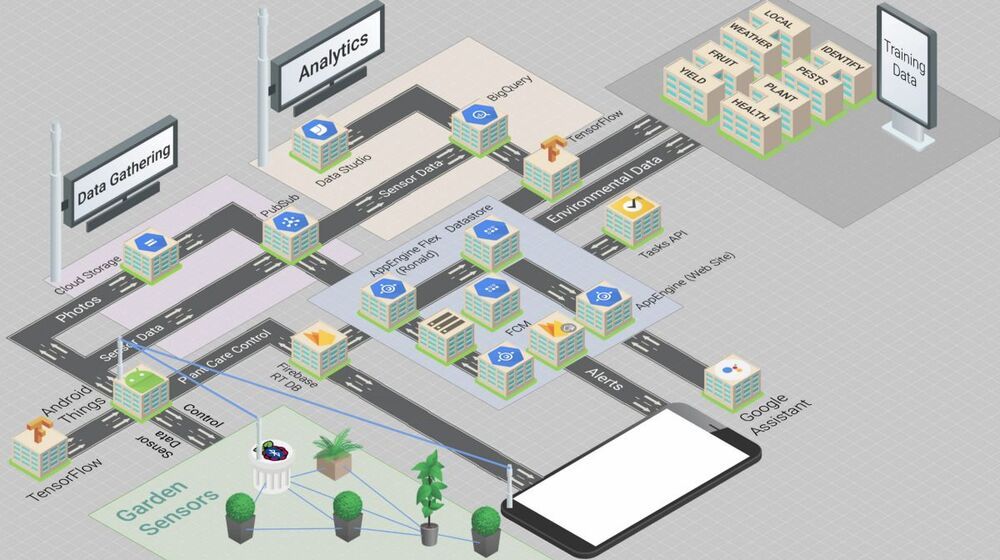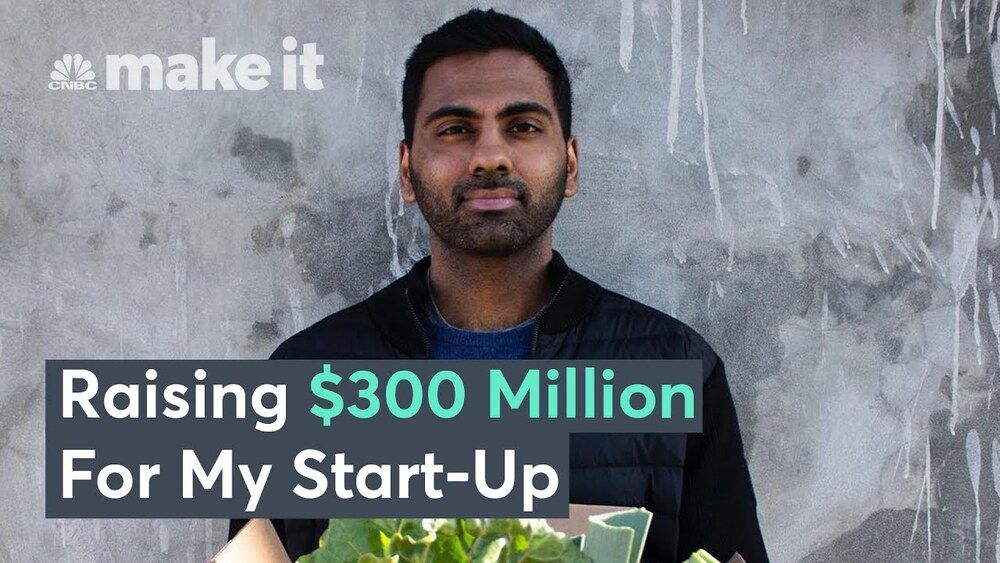Designing an autonomous, learning smart garden.
In the first episode of Build Out, Colt and Reto — tasked with designing the architecture for a “Smart Garden” — supplied two very different concepts, that nevertheless featured many overlapping elements. Take a look at the video to see what they came up with, then continue reading to see how you can learn from their explorations to build your very own Smart Garden.
Both solutions aim to optimize plant care using sensors, weather forecasts, and machine learning. Watering and fertilizing routines for the plants are updated regularly to guarantee the best growth, health, and fruit yield possible.
Colt’s solution is optimized for small-scale home farming, using a modified CNC machine to care for a fruit or vegetable patch. The drill bit is replaced with a liquid spout, UV light, and camera, while the cutting area is replaced with a plant bed that includes sensors to track moisture, nutrient levels, and weight.







